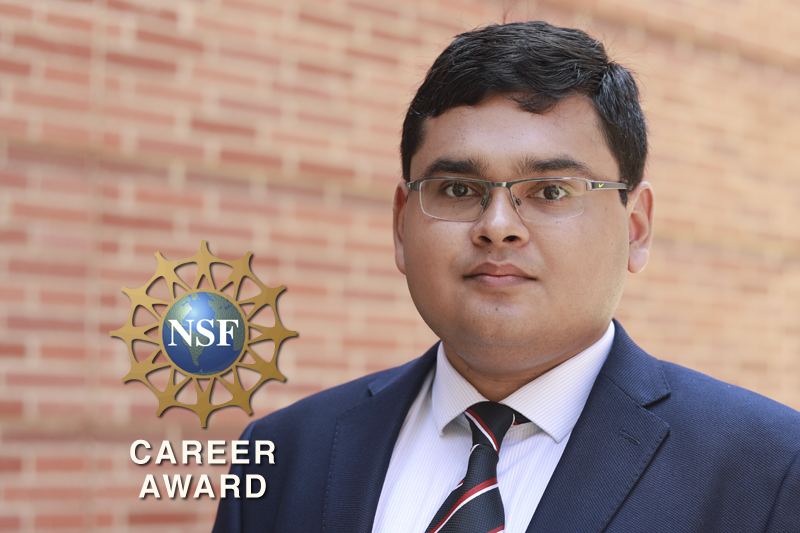UCLA Mechanical Engineer Receives NSF CAREER Award to Create Soft Robot Simulation

UCLA Samueli
M. Khalid Jawed, an assistant professor of mechanical and aerospace engineering at the UCLA Samueli School of Engineering, has received a National Science Foundation CAREER award, the agency’s highest honor for faculty members in the early stages of their teaching and research careers.
The award includes a five-year, $700,000 grant to support Jawed’s research to develop computer simulations that model the complex motions of soft robots. The project looks to automate how such robots are designed and controlled, using a physics-based simulation tool on a computer that runs in real-time.
Currently, soft robots are designed by trial-and-error from building and testing of multiple prototypes.
The ultra-detailed simulation tool developed from this project will be used to design a soft robot inspired by the shape and movements of a bacterium with an undulating tail.
The research will lead to the construction and autonomous operation of a macro-scale swimming robot based on that design. This biomimetic robot could also help inform us on the propulsive mechanism of bacteria. The advance can ultimately lead to miniaturization of the robot, smaller than 1 millimeter, that could be used in biomedical settings.
The work builds on Jawed’s previous research in this field.
Jawed directs the Structures-Computer Interaction Laboratory, which combines computation, robotics and machine learning in research to discover the underlying mechanics of solids and structures. The lab designs, models and builds smart programmable structures by developing computer simulation tools and incorporating machine-learning methods.
Jawed joined UCLA Samueli in 2017, following a postdoctoral appointment at the Soft Machines Laboratory of Carnegie Mellon University. He received his Ph.D. from the Massachusetts Institute of Technology.
